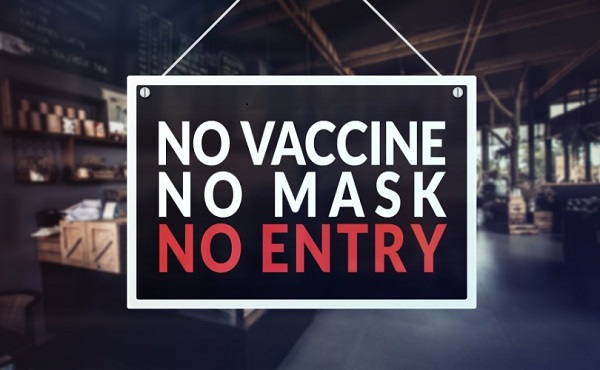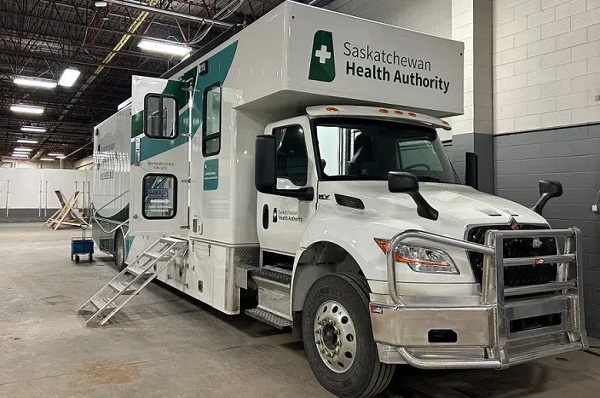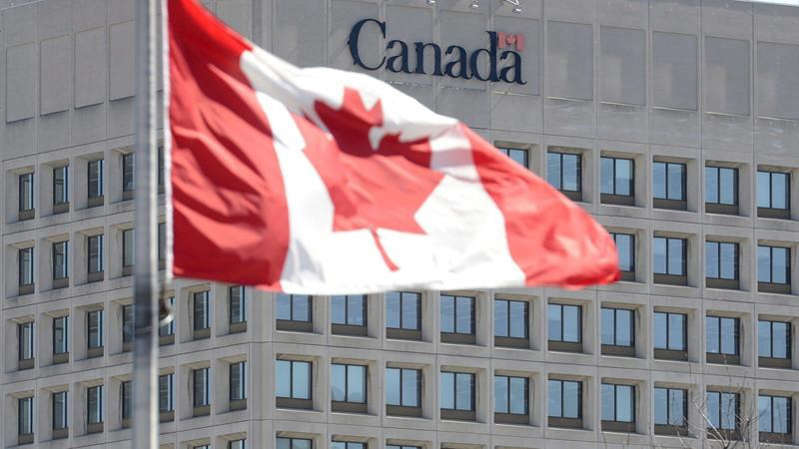Alberta
Too Graphic For A Press Conference But Fine For Kids In School?

From the Frontier Centre for Public Policy
By Lee Harding
Alberta moves to remove books after disturbing content, too graphic for media to view, was found in schools
Should elementary school children be given books to read with harsh insults against minorities, depictions of oral sex, and other disturbingly graphic and explicit content?
Such books have been in some Alberta elementary schools for a while, and in many school libraries across Canada.
In late May, the Alberta government announced it would establish new guidelines regarding age-appropriate materials in its schools. A government press release included quotes with disturbing content, but at a press conference, Education Minister Demetrios Nicolaides said some book illustrations could not be shown.
“I would show these images to all of you here and to the media, but they are too graphic for a live-stream media event. These examples … illustrate the kind of content that raises concerns amongst parents,” Nicolaides said.
You don’t say? This seems like the sort of stuff no one, except a pervert in a park, would dream of showing to a child. Ironically, the inability to publicize such graphic materials is part of the reason they have been shown to children with little public awareness.
Citizens’ group Action4Canada (A4C) has claimed its activism played a pivotal role in the Alberta decision. The organization has compiled a 36-page document online with examples of objectionable content in Canadian schools. Among the worst is Identical by Ellen Hopkins, which includes graphic descriptions of a little girl being molested by her father.
A4C founder Tanya Gaw has repeatedly tried to raise concerns about objectionable books with school boards, often without success. In some cases, she isn’t even allowed on the agenda if she states her topic upfront. When she is permitted to speak, she’s frequently cut off as soon as she begins quoting from the books, preventing the content from entering the public record.
In January 2023, Gaw made an online presentation to a school board in Mission, B.C. regarding materials in their schools. As she began to screenshare what was there, some board members objected, saying such permission had not been given in advance.
One month later, the board banned Action4Canada from making any further presentations. In later media interviews, the board chair justified the decision by saying Gaw’s PowerPoint contained some graphic and “inappropriate images.”
Exactly, and that is the problem. A recent check showed Mission’s school division only removed four of 15 books A4C objected to. Gaw is just glad “Identical” is one of them.
Pierre Barns, a father from Abbotsford, B.C., made it his mission to notify school boards across Canada what was on their school shelves. An online search was all it took to confirm. A “reply all” from a board member at the Halton School District in Ontario was most ironic.
“I am concerned. This individual has included links to publications and videos which may contain illegal content,” she wrote.
“I’m not sure how to investigate the content of the email safely. Would you please advise us whether or not this person ought to be reported to police? Is there some action we should take?”
There probably was action they should have taken, such as removing the books, but that never happened. Later, they defended a biologically male teacher in their school division who made international headlines by wearing large prosthetic breasts to school.
The Alberta government has committed to conducting public consultations before implementing new policies. It’s a good time for parents and citizens there and in other provinces to speak up. A young mind is a terrible thing to corrupt, but unfortunately, some schools are part of this corrosive effort.
Lee Harding is a research fellow with the Frontier Centre for Public Policy.
Alberta
US media talk to Alberta Premier Danielle Smith in Washington

From the Facebook page of Danielle Smith
Alberta
Pro-life activist describes how child traffickers take advantage of Alberta’s abortion lax laws

From LifeSiteNews
A recent article recounted how a 13-year-old girl was ‘sold’ to sex traffickers, found to be pregnant by her captors, and forced to take chemical abortion pills.
Richard Dur, a political consultant who serves as the executive director of Prolife Alberta, shared grisly details of how human traffickers are taking advantage of the province’s lax abortion laws to get away with essentially whatever they want when it comes to innocent life.
In a recent opinion piece for Juno News, Dur wrote about the shocking tale of a 13-year-old girl who was “sold” to sex traffickers. She was forced to come to western Canada from the Montreal area, found to be pregnant by her captors, and was then forced to take chemical abortion pills.
Dur noted that the girl’s traffickers knew that Alberta, notably the Red Deer area, was “good business,” as the “profits were higher.”
After the girl missed her period, the trafficker’s minder found out, as his job was to “watch the girls, track the bleeding, report anything that might interrupt business.”
The men had in place a “quiet solution” for such situations, that being abortion pills, which are widely available in Alberta without a prescription or doctor visits.
“No doctor’s visit. No age check — not that it would have mattered. Just two pills, mailed discreetly to the door of a short-term rental in southeast Calgary. One to stop the pregnancy. One to flush it out. Reproductive freedom — streamlined for traffickers,” Dur wrote.
After the girl was forced to take the pills, she bled all night by herself. She was forced back to “work” the next day.
Dur noted that this girl’s story is not “fiction” or “hypothetical” but is the “hidden reality behind Project Endgame — Alberta’s largest human trafficking bust.”
Police in the province have noted that traffickers have operated this way for over a decade, with victims being “coerced, transported, and exploited.”
However, what is left out of the picture by officials is that the reason the traffickers can get away with what they do is because of the province’s “permissive, on-demand abortion regime.”
In Alberta, Mifegymiso, which became available to Canadians in 2017, is now legal and free, allowing many women to kill their unborn babies at home without any medical supervision, often resulting in severe injuries to the mother in addition to the trauma of seeing their murdered baby. No ID, pregnancy test or medical exam is required.
Dur noted that another woman, “an older girl, or the trafficker’s assistant,” can obtain the drugs easily for anyone.
“No proof of pregnancy required. All it takes is a phone call and a mailing address. Or the trafficker standing over her, watching, listening. He never needs to leave the room. He never needs to lose control,” he wrote.
Canada’s “free” contraceptive law was passed last year and came about as a result of Bill C-64. The law was introduced by the former government of Justin Trudeau.
Drugs for at-home chemical abortions are typically done in the form of drugs like Mifegymiso. In January, Campaign Life Coalition reported that a 19-year-old Canadian girl died after taking Mifegymiso.
Free contraception is not ‘liberation’ but allows for ‘a license for exploitation,’ says Dur
Dur recounted that the story of the young women forced into the underground sex trade shows how the current system in Alberta and Canada has resulted in girls being enslaved at shocking rates.
“When a 13-year-old girl can be trafficked, abused, and silenced with a phone call and two pills, we must ask: who, exactly, is this system protecting? But she is not the exception,” he wrote.
“She is the victim of a system functioning exactly as it’s been designed to — with no guardrails. That’s not liberation. That’s a license for exploitation.”
Dur observed that for all the Alberta government says it does to combat trafficking, “there’s a glaring loophole in its strategy — one traffickers depend on.”
“Its name? On-demand abortion access,” he noted.
While the United Conservative Government (UCP) has promised to do more to combat traffickers, with Public Safety Minister Mike Ellis saying “Human trafficking is a serious and often hidden crime that devastates lives and communities,” the reality is that it is hidden due in part to abortion pills.
“A trafficker can control a young girl’s body, her movements, and even the consequences of his crimes — because Alberta allows it. If we are serious about protecting the exploited, we must be serious about what’s enabling their continued exploitation,” Dur wrote.
Dur noted that if traffickers can cross borders “without inspection, why wouldn’t they exploit abortion access that’s just as unguarded?”
According to Ellis “We’re not just trying to make headlines — we’re trying to change lives.”
Dur said that the “change” should start today with changing the policy regarding abortion pills taken at home.
“Change the policy that lets predators cover their crimes with a phone call and a mailing address. Close the loophole that puts abortion — chemical or surgical — in the hands of men exploiting vulnerable girls, with no age restriction, no parental notification, no questions, and no oversight,” he noted.
“Because right now, Alberta rescues victims with one hand — and hands them back to their abusers with the other.”
-

 Business2 days ago
Business2 days agoBank of Canada Flags Challenges Amid Absence of Federal Budget
-

 National2 days ago
National2 days agoCarney’s leadership style will make or break Canada’s future
-

 Energy2 days ago
Energy2 days agoSending natural gas pipeline project back for environmental review could put $20 billion investment at risk
-

 COVID-192 days ago
COVID-192 days agoCOVID-censured doctor says Liberals targeted him because he made government look bad
-

 Banks1 day ago
Banks1 day agoLiberal border bill could usher in cashless economy by outlawing cash payments
-

 Health2 days ago
Health2 days agoAnnouncing our $10,000 Second Chance Early Bird Winner!
-

 COVID-1924 hours ago
COVID-1924 hours agoA COVID-19 day of reckoning is long overdue
-

 Economy24 hours ago
Economy24 hours agoGovernments across Canada should prioritize energy infrastructure—including pipelines






